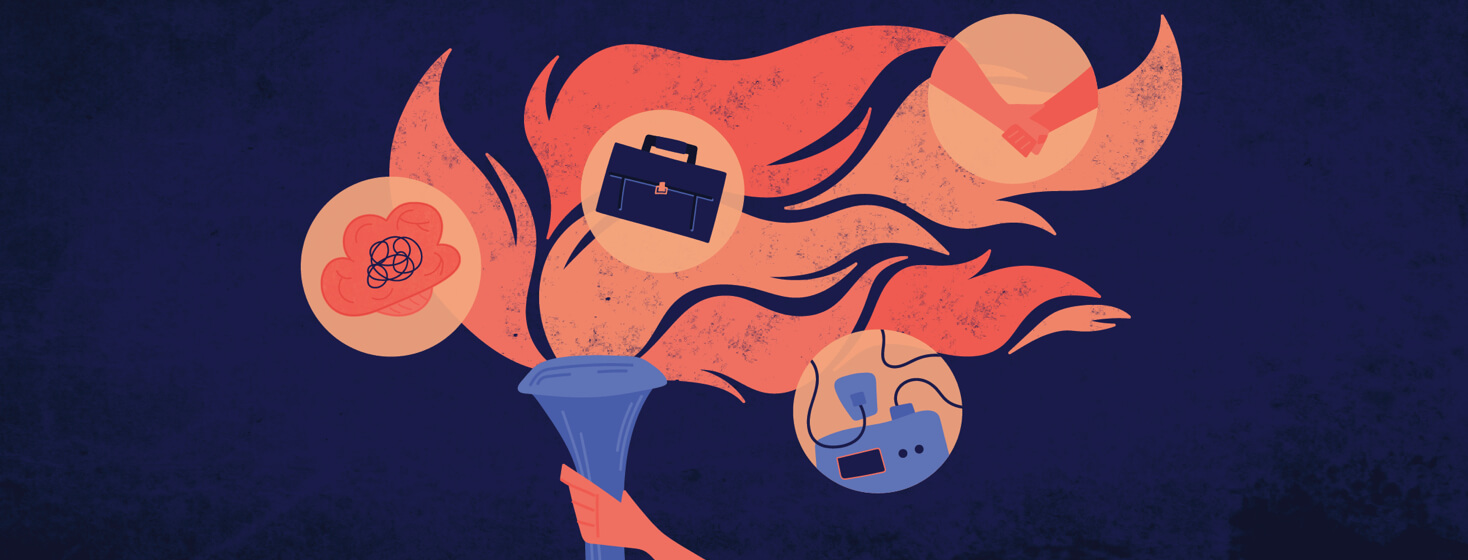5 Things I Learned From the 2020 Olympics
These past few weeks watching the 2020 Olympics have been such an eye-opener for me. The sheer physical strength and determination of the athletes are awe-inspiring for sure.
Subsequently, it made me reflect on my own life so far.
1. Mental health is just as important as physical health
As someone who used to struggle with anxiety and depression, I know how debilitating mental health struggles can be. However, my diagnosis and treatment with CPAP helped a lot. Likewise, so did improving my physical health.
For example, just 30 minutes of exercise is a huge mood booster for me. Of course, treating mental health issues is an ongoing process, but I now know how to lift myself up when I'm down.
2. It's important to have a support system
I am fascinated by how much the athletes rely on their coaches and families for support. Certainly, becoming an Olympian is not something one can do on their own. That's why I am so grateful for this community.
I've learned quite a bit since I joined. For instance, how to turn off the humidifier of my CPAP if I am not using it. Most importantly, I know I am not alone on my sleep apnea journey.
3. Age is not a barrier
Watching 45-year-old beach volleyball player Jake Gibbs is such an inspiration. It reminds me that I am not too old to challenge myself. For example, I took the stairs to get to the top of the CN Tower in Toronto in my 40s. That is to say, all 1,776 of them. I couldn't have done that before my diagnosis, for sure.
Before my sleep apnea diagnosis and CPAP treatment, I would have been too tired and overweight to even think about such a feat. However, finally managing my sleep apnea with CPAP motivated me to challenge myself, both mentally and physically.
4. It is OK to pivot
Some athletes start off in one sport but switch to another. Likewise, I've had a few careers in my life and have subsequently pivoted. As a result of successfully managing health conditions related to sleep apnea and a hormone imbalance, I'm now a health coach.
In addition, I've also become a sleep apnea advocate. I certainly never thought that my struggles with my health would lead me to help others.
5. Feel the fear and do it anyway
Olympic athletes face a tremendous amount of fear every day. However, they overcome those fears and excel at their events. In my life, for example, I've faced a lot of fearful moments. Such as going for my first sleep study. Followed by working on a cruise ship for 6 months while using CPAP.
Once I let go of the fear of being far from home and family, I had the time of my life. Additionally, I was fearful of telling my sleep apnea story. But once I did, so many doors opened up.
It is not about winning or losing
In conclusion, the Olympics isn't about winning or losing. It is about doing your very best despite challenges. Most importantly, it is about asking for help, whether it is from a medical professional, coach, or a community such as this.

Join the conversation